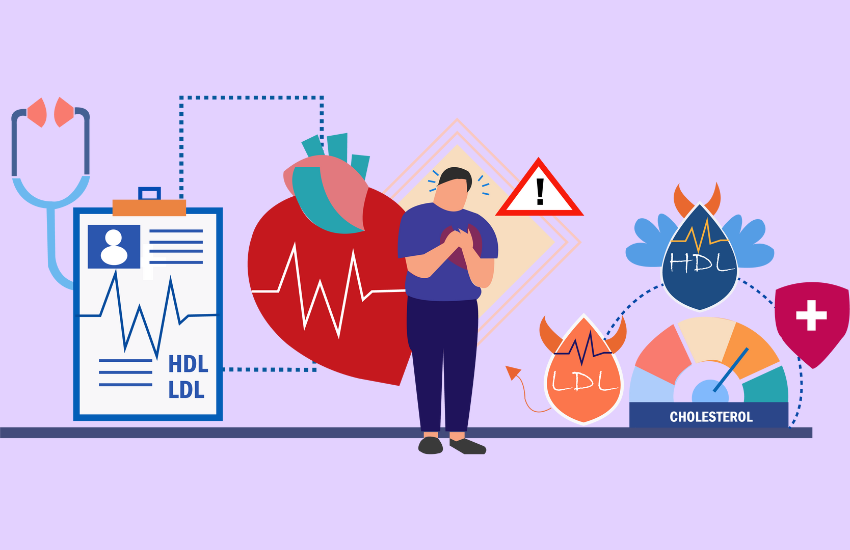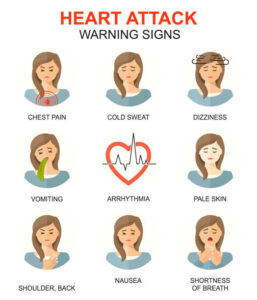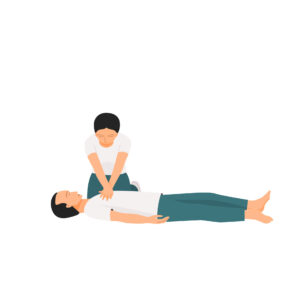
A heart attack is a medical emergency that requires immediate attention. Knowing what to do in such a situation can make a significant difference in saving lives and minimising long-term damage. Here are the critical steps to take if you or someone around you experiences a heart attack.
 Recognize the Signs
Familiarise yourself with the common symptoms of a heart attack. These may include chest pain or discomfort that may radiate to the arm, jaw, neck, or back. Other signs can include shortness of breath, cold sweat, nausea, lightheadedness, and a sense of impending doom. Promptly recognizing these symptoms is vital for taking swift action.
Call Emergency Services
If you suspect a heart attack, don't hesitate to call emergency services or the local emergency number immediately. The sooner professional medical help arrives, the better the chances of receiving timely treatment. Stay on the line and provide all necessary information about the situation, including the exact location and the symptoms experienced.
Stay Calm and Comfortable
While waiting for medical help to arrive, try to keep the person calm and comfortable. Encourage them to sit down and rest in a comfortable position. Loosen any tight clothing, such as a tie or belt, to ensure unrestricted breathing. Reassure the person that help is on the way and that they are not alone.
Assist with Medications
If the person experiencing a heart attack has been prescribed nitroglycerin tablets by their doctor, help them take the medication as directed. Nitroglycerin can help relieve chest pain by widening the blood vessels and improving blood flow. Follow the individual's specific instructions for administering the medication, such as placing it under the tongue.
Recognize the Signs
Familiarise yourself with the common symptoms of a heart attack. These may include chest pain or discomfort that may radiate to the arm, jaw, neck, or back. Other signs can include shortness of breath, cold sweat, nausea, lightheadedness, and a sense of impending doom. Promptly recognizing these symptoms is vital for taking swift action.
Call Emergency Services
If you suspect a heart attack, don't hesitate to call emergency services or the local emergency number immediately. The sooner professional medical help arrives, the better the chances of receiving timely treatment. Stay on the line and provide all necessary information about the situation, including the exact location and the symptoms experienced.
Stay Calm and Comfortable
While waiting for medical help to arrive, try to keep the person calm and comfortable. Encourage them to sit down and rest in a comfortable position. Loosen any tight clothing, such as a tie or belt, to ensure unrestricted breathing. Reassure the person that help is on the way and that they are not alone.
Assist with Medications
If the person experiencing a heart attack has been prescribed nitroglycerin tablets by their doctor, help them take the medication as directed. Nitroglycerin can help relieve chest pain by widening the blood vessels and improving blood flow. Follow the individual's specific instructions for administering the medication, such as placing it under the tongue.
 Perform CPR, if Necessary
If the person becomes unconscious and stops breathing, it may be necessary to perform cardiopulmonary resuscitation (CPR). If you are trained in CPR, begin chest compressions and rescue breaths according to the guidelines provided by the American Heart Association or the local authorities. If you are not trained in CPR, the emergency dispatcher may guide you through the steps until help arrives.
Perform CPR, if Necessary
If the person becomes unconscious and stops breathing, it may be necessary to perform cardiopulmonary resuscitation (CPR). If you are trained in CPR, begin chest compressions and rescue breaths according to the guidelines provided by the American Heart Association or the local authorities. If you are not trained in CPR, the emergency dispatcher may guide you through the steps until help arrives.
 Remember, time is of the essence during a heart attack. Every second counts, and immediate action can greatly increase the chances of a positive outcome. By recognizing the symptoms, calling for emergency help, providing comfort, assisting with medications, and performing CPR if needed, you can play a crucial role in potentially saving a life.
It's essential to note that this article is for informational purposes only and should not replace professional medical advice. If you suspect a heart attack, always seek immediate medical attention and follow the guidance of healthcare professionals and emergency services.
Remember, time is of the essence during a heart attack. Every second counts, and immediate action can greatly increase the chances of a positive outcome. By recognizing the symptoms, calling for emergency help, providing comfort, assisting with medications, and performing CPR if needed, you can play a crucial role in potentially saving a life.
It's essential to note that this article is for informational purposes only and should not replace professional medical advice. If you suspect a heart attack, always seek immediate medical attention and follow the guidance of healthcare professionals and emergency services.
 Recognize the Signs
Familiarise yourself with the common symptoms of a heart attack. These may include chest pain or discomfort that may radiate to the arm, jaw, neck, or back. Other signs can include shortness of breath, cold sweat, nausea, lightheadedness, and a sense of impending doom. Promptly recognizing these symptoms is vital for taking swift action.
Call Emergency Services
If you suspect a heart attack, don't hesitate to call emergency services or the local emergency number immediately. The sooner professional medical help arrives, the better the chances of receiving timely treatment. Stay on the line and provide all necessary information about the situation, including the exact location and the symptoms experienced.
Stay Calm and Comfortable
While waiting for medical help to arrive, try to keep the person calm and comfortable. Encourage them to sit down and rest in a comfortable position. Loosen any tight clothing, such as a tie or belt, to ensure unrestricted breathing. Reassure the person that help is on the way and that they are not alone.
Assist with Medications
If the person experiencing a heart attack has been prescribed nitroglycerin tablets by their doctor, help them take the medication as directed. Nitroglycerin can help relieve chest pain by widening the blood vessels and improving blood flow. Follow the individual's specific instructions for administering the medication, such as placing it under the tongue.
Recognize the Signs
Familiarise yourself with the common symptoms of a heart attack. These may include chest pain or discomfort that may radiate to the arm, jaw, neck, or back. Other signs can include shortness of breath, cold sweat, nausea, lightheadedness, and a sense of impending doom. Promptly recognizing these symptoms is vital for taking swift action.
Call Emergency Services
If you suspect a heart attack, don't hesitate to call emergency services or the local emergency number immediately. The sooner professional medical help arrives, the better the chances of receiving timely treatment. Stay on the line and provide all necessary information about the situation, including the exact location and the symptoms experienced.
Stay Calm and Comfortable
While waiting for medical help to arrive, try to keep the person calm and comfortable. Encourage them to sit down and rest in a comfortable position. Loosen any tight clothing, such as a tie or belt, to ensure unrestricted breathing. Reassure the person that help is on the way and that they are not alone.
Assist with Medications
If the person experiencing a heart attack has been prescribed nitroglycerin tablets by their doctor, help them take the medication as directed. Nitroglycerin can help relieve chest pain by widening the blood vessels and improving blood flow. Follow the individual's specific instructions for administering the medication, such as placing it under the tongue.
 Perform CPR, if Necessary
If the person becomes unconscious and stops breathing, it may be necessary to perform cardiopulmonary resuscitation (CPR). If you are trained in CPR, begin chest compressions and rescue breaths according to the guidelines provided by the American Heart Association or the local authorities. If you are not trained in CPR, the emergency dispatcher may guide you through the steps until help arrives.
Perform CPR, if Necessary
If the person becomes unconscious and stops breathing, it may be necessary to perform cardiopulmonary resuscitation (CPR). If you are trained in CPR, begin chest compressions and rescue breaths according to the guidelines provided by the American Heart Association or the local authorities. If you are not trained in CPR, the emergency dispatcher may guide you through the steps until help arrives.
 Remember, time is of the essence during a heart attack. Every second counts, and immediate action can greatly increase the chances of a positive outcome. By recognizing the symptoms, calling for emergency help, providing comfort, assisting with medications, and performing CPR if needed, you can play a crucial role in potentially saving a life.
It's essential to note that this article is for informational purposes only and should not replace professional medical advice. If you suspect a heart attack, always seek immediate medical attention and follow the guidance of healthcare professionals and emergency services.
Remember, time is of the essence during a heart attack. Every second counts, and immediate action can greatly increase the chances of a positive outcome. By recognizing the symptoms, calling for emergency help, providing comfort, assisting with medications, and performing CPR if needed, you can play a crucial role in potentially saving a life.
It's essential to note that this article is for informational purposes only and should not replace professional medical advice. If you suspect a heart attack, always seek immediate medical attention and follow the guidance of healthcare professionals and emergency services.




